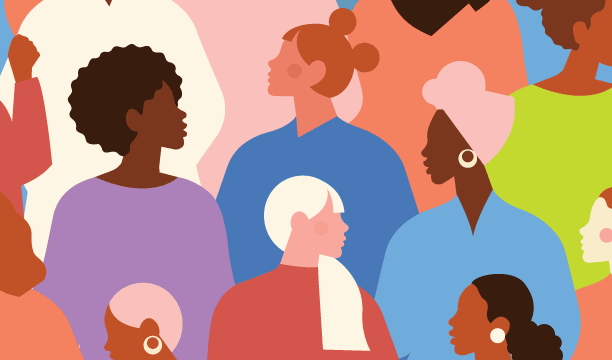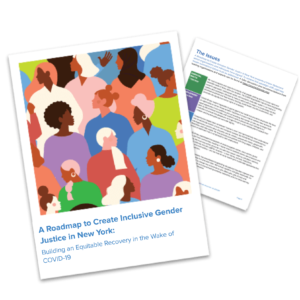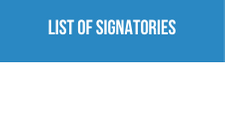

Vision Statement
For so many across the world, the COVID-19 pandemic has brought pain and loss, disproportionately felt by those who have been systematically and historically sidelined by racism, patriarchy, and institutionalized economic tyranny. In spite and because of this, the COVID-19 pandemic and the heightened collective consciousness around issues of systemic racism uncover an opportunity to reimagine and reconstruct our identity and our institutions.
As organizations that work to advance social justice and gender equity, we believe we must step into this opportunity. New York has been the epicenter of the pandemic in America and we must be a leader in shaping our recovery to create lasting justice.
We believe that equality and justice mean taking affirmative steps to advance anti-racist policies that promote the health, safety and economic security of all people, and in particular those of us who experience entrenched, historical and overlapping forms of discrimination: women, people of color, people in poverty, people with disabilities, young people, older people, indigenous communities, immigrants and LGBTQ+ people.
We believe our institutions must prioritize the full humanity and dignity of all people, and function to reflect and promote our collective interdependence across communities. To do this, we believe we must abolish systems that reflect a mentality of policing that have for far too long operated to oppress Black and Brown people.
We believe our identity must embrace our interconnectedness through non-violent problem solving and in cooperation with each other and the planet.
We believe in an inclusive feminist vision for the future where we value equity, community and caregiving as powerful and the only way to rectify past injustice. This is not a “women’s issue” — this is an issue that deeply implicates all of us and our ability to thrive in the future.
We call on our leaders to ensure that solutions are viewed through a gender justice and anti-racist lens. This will require diverse representation both in those who are chosen to chart the path forward and throughout our institutions generally. But diverse representation alone is nowhere near enough.
This document presents a vision of the radical transformation that is necessary in order to heal from the wounds inflicted by our violent history and create a society in which we create inclusive, lasting gender justice together.
Our institutions and our country’s inherited cultural identity are built to protect an exclusive power structure that serves and protects its privileged. Because of this, shifting this paradigm will not be easy, but a future where we all have the opportunity to collectively and independently thrive requires nothing less. This is our vision and this is our work.
What is Inclusive Gender Justice?
Inclusive gender justice is anti-racist. Inclusive gender justice is equality for people of all gender identities, gender expressions, and sexual orientations. Systems and policies must change dramatically to achieve the paradigm shift needed to achieve inclusive gender justice. Too, we must recognize that the white-led feminist movement has often failed to prioritize BIPOC women’s experiences at the intersection of racism & misogyny. We seek to do more than acknowledge this history. It is our hope that our fight for inclusive gender justice will transform how we strive toward gender equity moving forward. We can only liberate ourselves if we also are fighting to liberate each other.
The Issues
| ESSENTIAL RIGHTS > Learn More |
We must value the humanity of all people, starting with the human rights and essential needs of all those living within our borders regardless of immigration status. The COVID-19 pandemic has laid bare longstanding systemic oppression, institutional racism, and economic inequities rooted in our history of warfare and colonialism. We need to make a radical shift to invest in a social safety net that prioritizes economic and food security, housing, public health, and the environment, and promotes the dignity and human rights of all people. |
| EMPLOYMENT > Learn More |
We must reimagine our institutions to ensure that all working people are paid enough to support their children and that everyone can work with dignity. COVID-19 has made it impossible to ignore gaps in our social and economic structures that have long undermined the progress of women, people of color and the LGBTQ+ community. We have an opportunity to correct these systemic injustices to ensure that all workers have access to equal opportunity in the workforce and our economy, that women of color and immigrants are no longer held back by discrimination and bias, and women’s work is valued. |
| CAREGIVING > Learn More |
We must invest in the work of providing quality care for children, individuals with disabilities, people with illnesses, and older adults. Caregiving has historically been conducted by women of color and immigrant workers and is deeply undervalued and underpaid. But COVID-19 has emphasized our interdependence and the value of quality care. In this moment we must provide care workers with living wages, childcare, and access to healthcare that is not tethered to their employment. |
| GENDER-BASED VIOLENCE & SAFETY > Learn More |
We must ensure that all women and gender expansive people are safe from sexual violence, anti-Black violence, race-based violence, anti-immigrant and anti-LGBTQ+ violence – in their homes, schools, institutions, workplaces, and communities. COVID-19 has exacerbated the pandemic of violence against women, trans women, queer people, and their communities, resulting in higher rates of domestic abuse, sexual assault, and trafficking. Now more than ever before, we must reach for sustainable approaches that center on prevention. |
| GIRLS & EDUCATION > Learn More |
We must demand the creation of holistic and affirming schools where students have access to the resources they need to meaningfully engage in education that centers their freedom, self-expression, joy, and well-being. The COVID-19 pandemic has exacerbated long standing educational inequities imposed upon students, largely along race and class lines. With school operations changing nationwide, we must use this moment to change how schools serve gender expansive youth and all girls, with special attention to Black and Brown girls, and ensure healing-centered, restorative, and anti-racist and gender affiriming learning settings when schooling resumes. |
| LEGAL JUSTICE > Learn More |
We must eradicate inequities in the criminal and civil legal systems with the same urgency and resources employed to eradicate COVID-19. The U.S. legal system has subjected generations of women and girls to the triple plague of racism, misogyny, and socioeconomic inequality, leaving suffering and loss in its wake. Its devastating impact on Black communities in particular has lasted over 400 years, entwined as it is with the legacy of slavery. The systemic nature of this crisis requires a systemic response. We seek a humane legal system that engages communities and promotes fairness, equity and compassion. |
| REPRODUCTIVE JUSTICE, HEALTH & RIGHTS > Learn More |
We envision a future in which reproductive health care is treated as all other health care should be: universally covered, accessible, patient-centered and inclusive of the full diversity of patients. Throughout our history, society has wrought political, legal and social turmoil upon women because of their capacity to become pregnant and their role in the family. The motivation and consequences of this control have largely turned on race, class, immigration and disability status. We must transform delivery of health care so that all people have access to quality, non-stigmatized care, including pregnancy-related and childbirth care, regardless of whether that person is seeking to have a healthy pregnancy, to maintain their fertility, or to have an abortion. |
| VOTING, DEMOCRACY & REPRESENTATION > Learn More |
We must guarantee that women have equal access to the vote. Without it, women will continue to be marginalized by a democracy that devalues their work and right to bodily autonomy. Still, 100 years after the ratification of the 19th Amendment, barriers to voting persist, particularly for Black, Brown, Latinx and other women of color. We must fight for expanded voting access, equal representation in all fields, and transparency in our government and businesses so that leaders and elected officials approach power through an inclusive feminist lens to dismantle historical exclusion, and listen and respond to community needs. |
Join the Conversation
The Roadmap was produced with great intentionality towards the inclusion of voices and leaders from many backgrounds. The work does not end with the current Vision Statement, issue narratives and policy recommendations outlined in the Roadmap. This is a dynamic process and Roadmap is a living document which will change and grow with the addition of new voices and changing circumstances.
The Roadmap will serve as a foundational document for our collective work in 2021 and beyond. Together we will create dynamic programming and actions which take aim at racism and sexism, foster systemic change and build a force for equity.
In the short term, PowHerNY will convene a series of conversations about how to achieve inclusive gender justice through intersectional policies and as organizations dedicated to gender equity.
In reality, the issues of employment, caregiving, or legal justice are often not experienced individually. All of these issues are intersecting and deserve attention as a collective system that has and continues to marginalize BIPOC women. Our first series of conversations will discuss how these systems specifically marginalize certain communities, including but not limited to Black women, Latinas, Native women, and Trans and gender expansive people, and what policies will help to ensure an equitable recovery for them.
A second series of conversations will acknowledge that achieving inclusive gender justice is not solely about policies, but the way we operate as gender equity organizations to ensure that the voices of BIPOC women are centered, uplifted, and prioritized. The exclusive feminist movement of the past cannot continue if we are to create an equitable future. If you are interested in joining us on this journey to ensure our movement reflects our values, email info@powherny.org.





